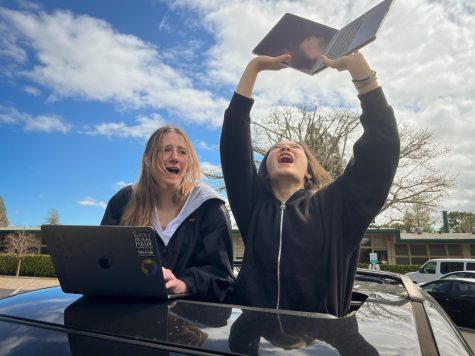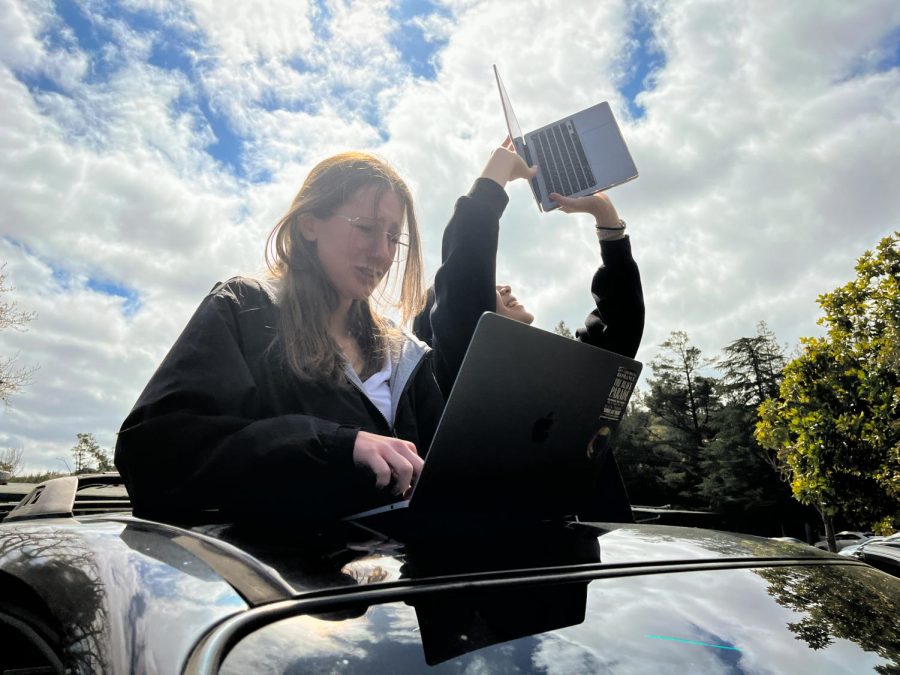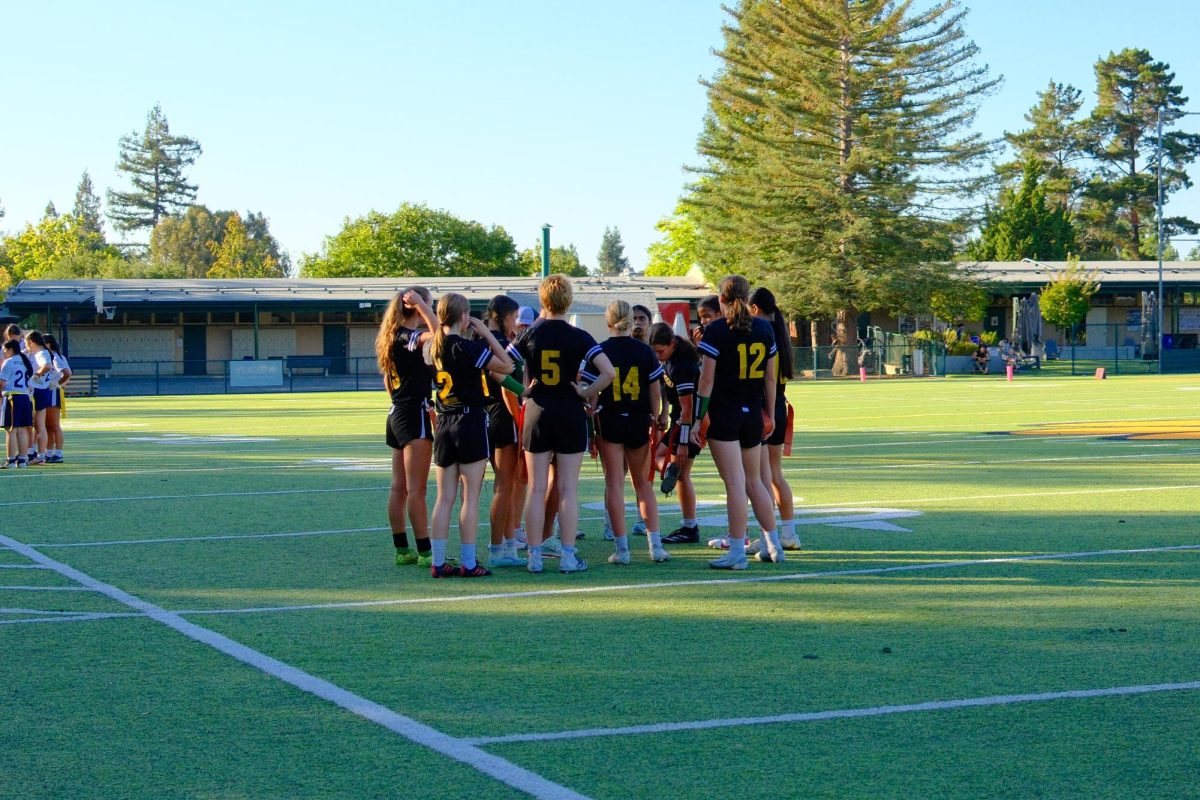Journalism’s Crypto Scheme
Featuring Sally King and Samantha Hsiung
March 29, 2023
Recent rumors have alleged The Purrrennial, Pinewood’s student newspaper, to be an organization that functions solely through unpaid, involuntary child labor used to further Journalism advisor Sam Jezak’s crypto mining agenda.
As a result of these rumors, senior Vincent Chen has theorized that the power outages that occurred March 16 and March 17 at Pinewood were not due to the high winds, but rather a consequence of Jezak’s psychotic crypto mining tendencies. He believes that Jezak crypto mined so much to the point where he depleted all of Pinewood’s electricity, estimating the aftermath of Jezak’s crypto mining frenzy to be around $110,000 in power bills, which equates to roughly one Bitcoin.
“The high winds were definitely staged by Journalism students as a cover up for Jezak’s crypto mining failure,” Chen said. “They also wrote that one article about the winds impacting Pinewood students, teachers, and admin just to make their cover up more believable, but who’s really buying it? Not me.”
Other members of the Pinewood community, rather than defaming Pinewood journalists, are worried about the wellbeing of said journalists. According to the U.S. Constitution, First Amendment rights are guaranteed by all government-owned entities, but not private entities — and because Pinewood is a private school, students’ First Amendment rights are not protected. Community members are suspecting that student journalists have not been vocal about their mistreatments because they have been forcefully silenced by Journalism advisors.
When approaching senior and Editorial Director Sally King in the lunch line for a comment, she wrote the letters “p,” “h,” “e,” and “l” on a physical Bitcoin and handed it to me. However, because I am not good at unscrambling letters, I could not figure out a logical combination for those four letters that would actually make sense. If you would like to help me in solving what this cryptic mystery word could be, feel free to contact me at [email protected].
Other extremely reliable sources have reported that they’ve personally seen Pinewood journalists mining cryptocurrency in Room 17 from 3-7 p.m. on the last Monday and Tuesday of every month during “layout,” which is supposedly a period of time in which all journalism editors congregate to create the print version of the newspaper. But rather than working on anything related to journalism, these extremely reliable sources speculate that “layout,” in reality, is a reference to the layout of Pinewood’s Wi-Fi network — and during “layout,” student “journalists” are actually hacking into Pinewood’s top-secret, super confidential Wi-Fi Map to track down the spots on campus that are the most optimal for high-speed crypto mining. These extremely reliable sources also believe that these students are being compelled against their will to engage in these illicit affairs without any sort of compensation, under the threat of having their fast lane lunch line privileges revoked.

When chasing Jezak in the hallways for an interview after seven ignored Google Chats, he gave me a glare, declined to comment on the situation, and stomped down the hallways in his ground-shattering gray Vans — so instead, I sought out Journalism advisor Kim Wetzel in Room 17, where she was holding a lunch meeting with her Journalism students. She insisted that she does not know about The Perennial’s crypto mining endeavors.
“Journalism is always a jolly good time for everyone with no child labor or crypto mining involved!” Wetzel said as she stuffed a child into the closet for selling too much of her Bitcoin stock.
Protesting child labor, censorship, and unethical crypto mining practices, Pinewood students have started three trending hashtags — #childlaborisnotokay, #screwcensorship, and #ihatecrypto — on Twitter. See the hashtags for more information on how you can help fight for justice for these student journalists.







